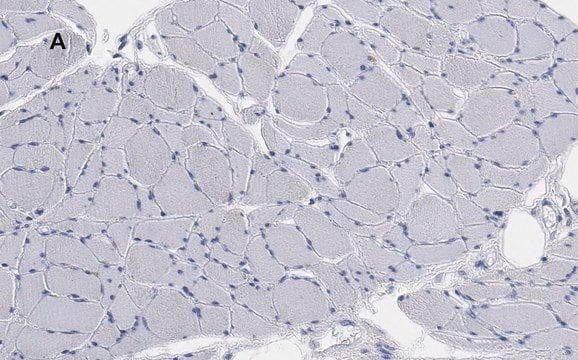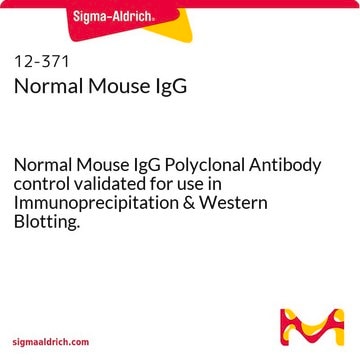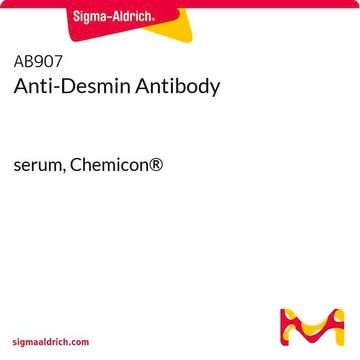D1033
Monoclonal Anti-Desmin antibody produced in mouse
clone DE-U-10, ascites fluid
Synonym(s):
Anti-CDCD3, Anti-CSM1, Anti-CSM2, Anti-LGMD1D, Anti-LGMD1E, Anti-LGMD2R
About This Item
Recommended Products
biological source
mouse
Quality Level
conjugate
unconjugated
antibody form
ascites fluid
antibody product type
primary antibodies
clone
DE-U-10, monoclonal
mol wt
antigen 50-55 kDa
contains
15 mM sodium azide
species reactivity
rabbit, chicken, hamster, feline, lizard, sheep, rat, human, bovine, viper, mouse, goat
technique(s)
indirect immunofluorescence: 1:40 using formalin-fixed, paraffin-embedded sections of human tissue
microarray: suitable
western blot: 1:200 using chicken gizzard extract/whole extract of mouse myoblast C2C12 cells
isotype
IgG1
UniProt accession no.
shipped in
dry ice
storage temp.
−20°C
target post-translational modification
unmodified
Gene Information
mouse ... Des(13346)
rat ... Des(64362)
General description
Specificity
Immunogen
Application
- immunohistochemical staining
- immunoblot analyses
- immunocytochemistry
- immunocytochemical localization of intermediate filaments
Biochem/physiol Actions
Disclaimer
Not finding the right product?
Try our Product Selector Tool.
recommended
Storage Class Code
12 - Non Combustible Liquids
WGK
nwg
Flash Point(F)
Not applicable
Flash Point(C)
Not applicable
Choose from one of the most recent versions:
Certificates of Analysis (COA)
Don't see the Right Version?
If you require a particular version, you can look up a specific certificate by the Lot or Batch number.
Already Own This Product?
Find documentation for the products that you have recently purchased in the Document Library.
Customers Also Viewed
Our team of scientists has experience in all areas of research including Life Science, Material Science, Chemical Synthesis, Chromatography, Analytical and many others.
Contact Technical Service













